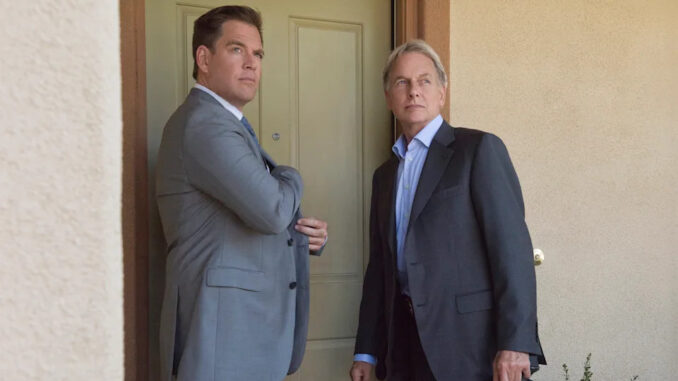
From Rookie to Right Hand: How Tony Grew Under Gibbs
In the high-octane, often grim, world of NCIS, where the line between life and death blurs daily, the relationship between Leroy Jethro Gibbs and Anthony DiNozzo was the enduring heart of the team, a complex, volatile, and ultimately profound mentorship. Tony’s journey from a flamboyant, movie-quoting rookie to Gibbs’s indispensable right hand wasn’t a smooth ascent, but a rugged, often bruising, journey through the crucible of Gibbs’s unique, demanding, yet deeply devoted tutelage.
Initially, Special Agent Anthony DiNozzo was a whirlwind of pop culture references, an almost-too-charming womanizer, and a constant source of playful irritation. He was undeniably talented, with sharp instincts and a keen eye for detail honed in Baltimore homicide, but he lacked the disciplined edge, the silent gravitas, and the profound understanding of human nature that defined Gibbs. Tony was a diamond in the rough, sparkling on the surface but unpolished beneath. He sought Gibbs’s approval with the eager desperation of a puppy, his bravado often a thinly veiled mask for an underlying insecurity, a boy trying to prove his worth in a man’s world. Gibbs, ever the silent observer, saw not just the superficial showman but the raw potential, the innate loyalty, and the intuitive mind waiting to be forged.
Gibbs’s methods of mentorship were legendary – and brutal. He didn't lecture; he acted. He didn’t offer comforting words; he dispensed head-slaps. His lessons were delivered in curt commands, knowing glances, and, most powerfully, through the sheer force of his example. Tony learned by doing, often by failing, and always under the relentless, watchful eye of his boss. He was thrown into the deep end, left to sink or swim, and every time, he found a way to paddle to shore, his strokes becoming stronger with each trial. The "Gibbs Rules" weren't just quirky aphorisms; they were a distillation of a life lived on the edge, a survival guide delivered implicitly, absorbed through osmosis. Tony learned to read Gibbs’s silences, to interpret the subtle shift in his gaze, to anticipate his next move before it was even conceived. This wasn't merely about following orders; it was about understanding the philosophy behind them, internalizing the very core of Gibbs's operational instincts.
Over time, the glint in Tony’s eye shifted. The bravado remained, but it was now underpinned by a growing confidence, a quiet competence that needed no external validation. He transitioned from merely mimicking Gibbs’s investigative methods to embodying them, albeit with his own distinct flair. When Gibbs was injured, or temporarily absent, it was Tony who instinctively stepped into the leadership vacuum, not with a flourish, but with a steady hand, guiding the team with a quiet authority that surprised even himself. He began to develop his own "gut" instinct, a deeply ingrained sense of right and wrong, a moral compass calibrated by years of exposure to Gibbs's unwavering integrity. The pop culture references never vanished, but they became less a shield and more a comfortable part of his identity, the wit a weapon rather than a distraction.
Crucially, Tony became the protector, the interpreter of Gibbs’s silences for the rest of the team. He was the one who could discern the unspoken command, anticipate the unasked question, and understand the deep, often painful, motivations behind Gibbs’s actions. He became the bridge between Gibbs’s stoic intensity and the team's need for guidance, a translator of the boss's often cryptic directives. He wasn't just following Gibbs; he was alongside him, an extension of his will, a mirror reflecting his best qualities, albeit through the vibrant, human lens of Tony DiNozzo. He learned not only how to lead but how to be led, how to trust implicitly, and how to carry the weight of command when called upon.
Ultimately, Tony’s growth under Gibbs wasn't about becoming a carbon copy. It was about becoming the man Gibbs knew he could be: a seasoned, intuitive, fiercely loyal agent capable of leading in his own right, profoundly shaped but not consumed by his mentor's formidable shadow. The head-slaps diminished, replaced by knowing glances and mutual respect. The mentor-apprentice dynamic matured into a relationship of deep familial bond, a quiet acknowledgment of shared experiences and unshakeable trust. Tony DiNozzo didn't just grow under Gibbs; he was forged by him, molded into the "right hand" – a testament to the transformative power of a truly demanding, yet deeply devoted, mentorship that defined an era of NCIS and left an indelible mark on its most vibrant character.